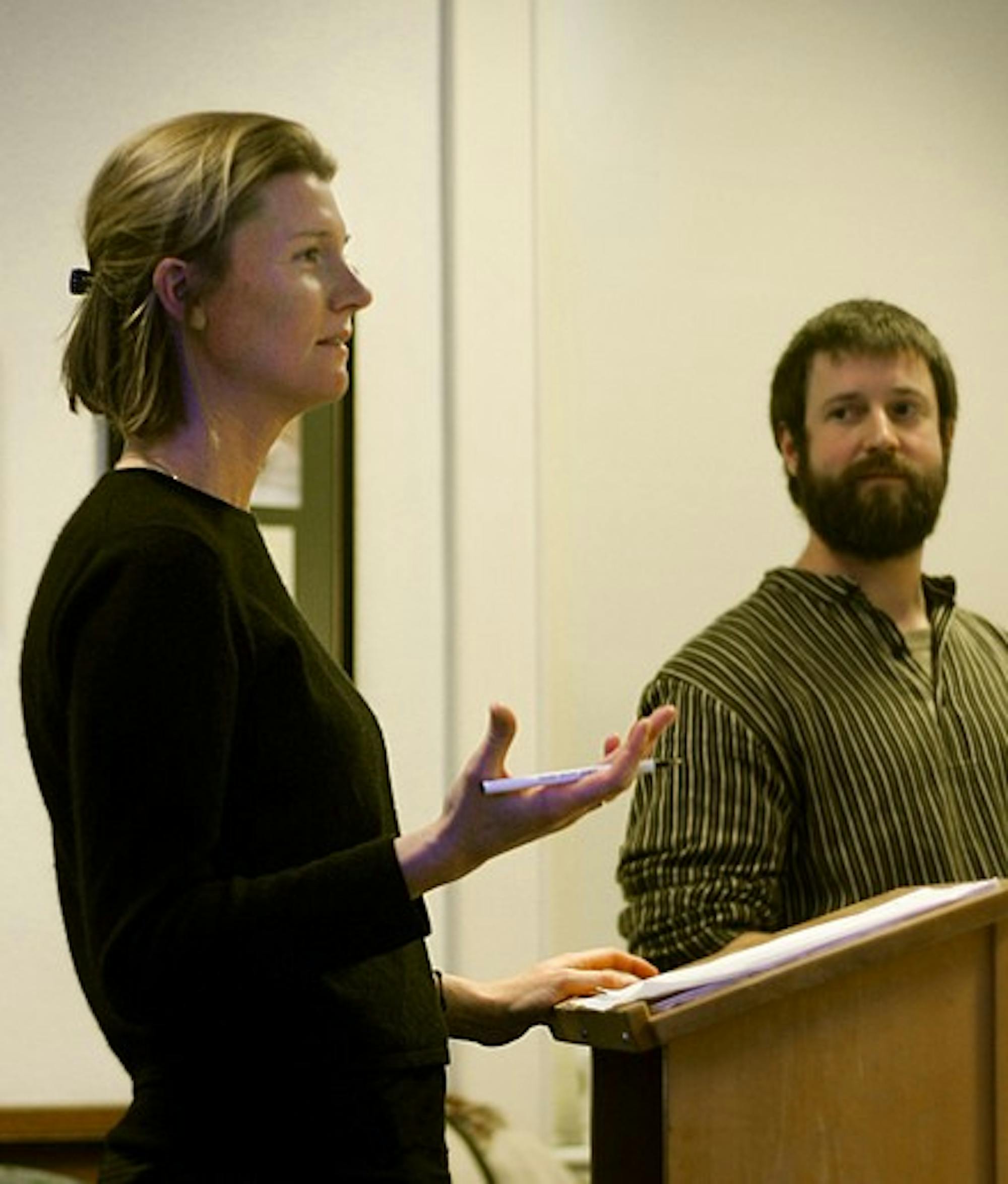Scott Miller and Wynne Washburn, who are enrolled in the Master of Arts of Liberal Studies program at the College, have spent four months every year for the past four years traveling to different locations to work on their project. Drawing on photographs, interviews and anecdotal accounts, the two have sought to illustrate how various ethnic groups peacefully coexist worldwide.
"We ethnographically explored the following question: Why are some societies with diverse populations able to maintain tolerance, while others allow internal differences to produce intolerance?" Washburn said.
Miller said he became interested in social tolerance while researching the cultural history of southern Spain between 755 and 1080 A.D.
"This was a time when Jews, Christians and Muslims, under the leadership of the Umayyad family from Damascus, created a society where arts, sciences and the technical trades flourished," he said. "It flourished because the leaders recognized that cultural differences between citizens were opportunities to collaborate, learn and create, not reasons to separate, isolate or hate."
After concluding their research in Spain, Miller and Washburn went to Bosnia-Herzegovina, which was culturally tolerant prior to the outbreak of civil war in 1992.
"In former Yugoslavia, Bosnia-Herzegovina was an example of tolerance between Orthodox Christians, Serbs, Roman Catholics, Croats and local Bozniaks," Washburn said. "Before the war, in Sarajevo, roughly 40 percent of the marriages were across religious lines."
As cultural intolerance grew during the civil war, according to Washburn, many familiies were forced from their homes. Although the United Nations returned many of the displaced families after the war ended in an effort to reintegrate the society, integration was limited and segregated schools are still a common problem, she said.
"Overall, we found a society struggling from lack of trust, made worse by a political system with no intention of bringing people together," Washburn said.
Miller and Washburn most recently went to Kerala, India, one of the most culturally diverse places in that country, they said.
"Between the 14th and 19th centuries in Kerala, the spice trade brought both Muslim and Christian traders to the coast," Miller said. "Many of the traders' families stayed, and today there is a population of 18 percent Christian, 18 percent Muslim and 60 percent Hindu."
Economic interdependence is a major incentive for many business owners to work together despite their cultural differences, he said.
"One Christian oil merchant depends on a Muslim tailor next door to watch his shop when he has to go help his family or run an errand," Miller said. "The tailor will keep his shop running while he is gone. The relationship is reciprocal."
During their travels, the two students also found that Kerala residents had a relatively high quality of life when compared with the rest of India, despite the area's relatively slow economic growth, Washburn said. Kerala has a particularly high literacy rate of 91 percent, she said, whereas the country's national average is 65 percent.
Miller and Washburn's project will take them next to Queens County, N.Y., which Miller described as the most culturally diverse county in the United States. Miller said he has moved to Astoria, Queens for the study and is optimistic about his work there.
"In a world where movement is so easy now, we all live in diverse societies," Miller said. "We're simply trying to figure out ways to interact and promote tolerance and unity."
The students' presentation was part of the Dartmouth Diversity Forum's monthly series on issues of diversity and community at the College.
A corresponding exhibition of Miller and Washburn's work from their time in Kerala opens at the Norwich Public Library in Norwich, Vt. on Jan. 9.




